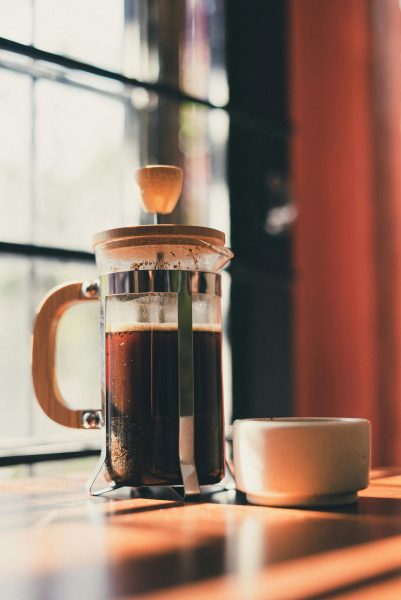
The French press, also known as a cafetière or coffee plunger, has maintained its popularity among coffee enthusiasts for over a century. Despite the proliferation of sophisticated brewing devices and high-tech coffee machines, this simple yet effective brewing method continues to capture the hearts of coffee lovers worldwide. Understanding why people gravitate toward French press brewing reveals insights into coffee culture, flavor preferences, and the pursuit of the perfect cup.
What is a French Press?
A French press consists of a cylindrical glass or metal container with a plunger that features a fine mesh filter. This straightforward design allows coffee grounds to steep directly in hot water before being separated by pressing the plunger down. The brewing process typically takes four minutes, during which the coffee grounds remain in contact with water, extracting oils, flavors, and aromatic compounds that define the beverage’s character.
The mechanism operates on immersion brewing principles, where coffee grounds are fully saturated and allowed to extract gradually. Unlike drip coffee makers that rely on gravity and brief contact time, the French press maximizes extraction through extended steeping, resulting in a distinctly different flavor profile that many coffee connoisseurs prefer.
The Science Behind French Press Brewing
French press brewing operates on fundamental extraction principles that distinguish it from other methods. The metal mesh filter allows coffee oils and fine particles to pass through, creating a fuller-bodied beverage with more complex flavors. These oils, which paper filters typically remove, contribute significantly to the coffee’s mouthfeel and aromatic intensity.
The extended contact time between grounds and water facilitates complete extraction of soluble compounds. Water temperature, grind size, and steeping duration work together to determine the final flavor profile. The optimal brewing temperature ranges between 195-205°F, while a coarse grind prevents over-extraction and reduces sediment in the final cup.
Why Coffee Enthusiasts Choose French Press
Coffee lovers consistently choose French press brewing for several compelling reasons that enhance their daily coffee experience:
- Full flavor extraction: The immersion method extracts maximum flavor compounds from coffee beans, creating a rich, complex taste profile that highlights the bean’s origin characteristics and roasting notes.
- Complete control over variables: Users can adjust grind size, water temperature, steeping time, and coffee-to-water ratio to customize their brewing experience according to personal preferences.
- Retention of coffee oils: Unlike paper filters, the metal mesh preserves essential oils that contribute to coffee’s natural flavors and aromatic properties, resulting in a more authentic taste.
- Cost-effectiveness: French presses require no electricity, paper filters, or replacement parts, making them an economical long-term brewing solution for quality coffee.
- Portability and simplicity: The straightforward design makes French presses ideal for travel, camping, or office use without requiring complex setup or maintenance.
French Press vs Other Brewing Methods
When compared to drip coffee makers, espresso machines, and pour-over methods, French press brewing offers unique advantages. Drip coffee makers often produce cleaner but less flavorful coffee due to paper filtration and shorter contact time. Espresso machines create concentrated shots but require significant investment and technical expertise.
Pour-over methods like V60 or Chemex produce clean, bright coffees but demand precise technique and timing. French press brewing democratizes quality coffee by requiring minimal skill while delivering consistently satisfying results. The method’s forgiving nature makes it accessible to beginners while still offering enough variables for experienced brewers to perfect their technique.
Best Coffee Beans for French Press
Selecting appropriate coffee beans significantly impacts French press brewing success, with certain characteristics enhancing the final result:
- Medium to dark roast profiles: These roasts complement the French press extraction method by providing robust flavors that stand up to the full-bodied brewing style without becoming overpowering or bitter.
- Single-origin beans: High-quality beans from specific regions showcase unique terroir characteristics that the French press method preserves and highlights, allowing drinkers to appreciate subtle flavor nuances.
- Coarse grind consistency: Freshly ground beans with uniform coarse particles prevent over-extraction and minimize sediment, ensuring optimal flavor balance and clean mouthfeel.
- Fresh roast dates: Beans roasted within two to four weeks maintain peak flavor potential, with the French press method effectively extracting the complex compounds that define exceptional coffee.
- Origin considerations: Beans from regions like Colombia, Guatemala, or Ethiopia often excel in French press brewing due to their inherent flavor complexity and body.
Common French Press Mistakes to Avoid
Even with its forgiving nature, French press brewing can suffer from common mistakes that diminish coffee quality. Using too fine a grind creates over-extraction and excessive sediment, while insufficient steeping time produces weak, under-developed flavors. Water temperature extremes either scorch the grounds or fail to extract properly.
Neglecting proper ratios typically results in either overly strong or weak coffee. The golden ratio of 1:15 to 1:17 (coffee to water) provides an excellent starting point for most preferences. Additionally, failing to preheat the vessel or using stale beans significantly impacts the final cup quality.
Conclusion
The enduring popularity of French press brewing stems from its unique combination of simplicity, control, and exceptional flavor delivery. This method appeals to coffee enthusiasts who value full-bodied, rich coffee that showcases the bean’s natural characteristics without technological complexity. Whether you’re seeking an economical brewing solution, portable coffee preparation, or simply desire maximum flavor extraction, the French press offers an accessible path to exceptional coffee experiences. As coffee culture continues evolving, this timeless brewing method remains a cornerstone for those who appreciate coffee’s fundamental pleasures and the satisfaction of crafting the perfect cup through time-tested techniques.
